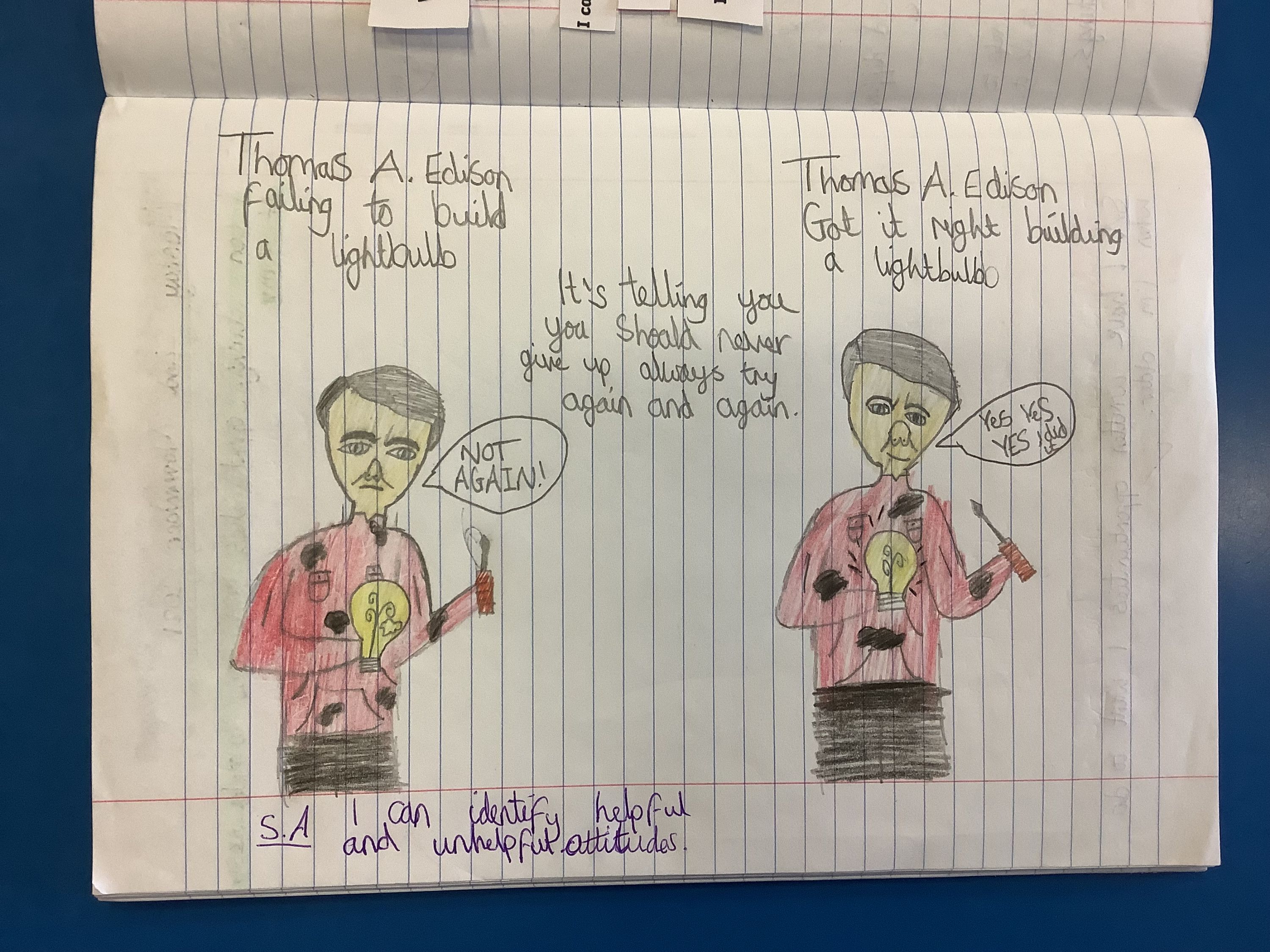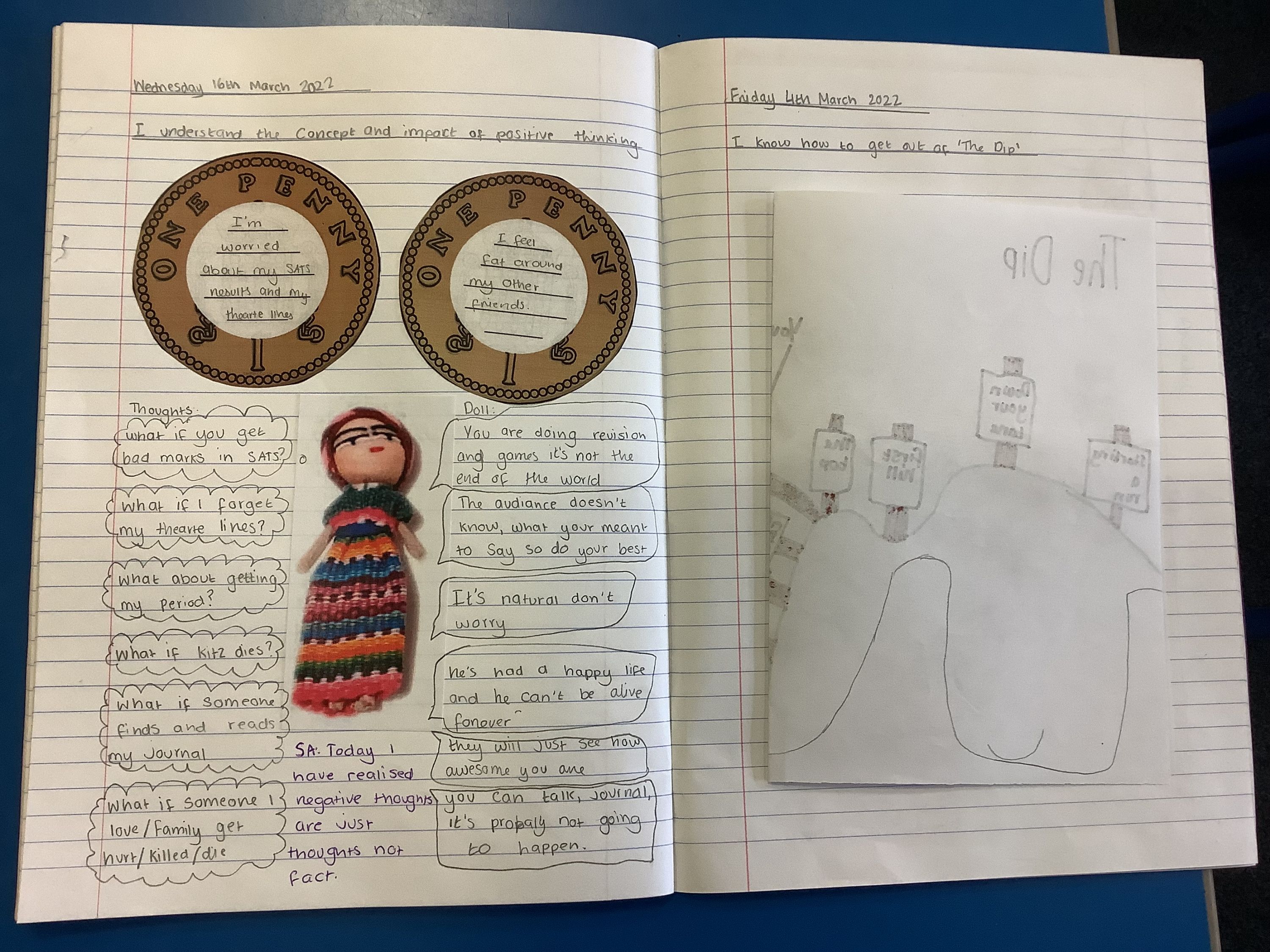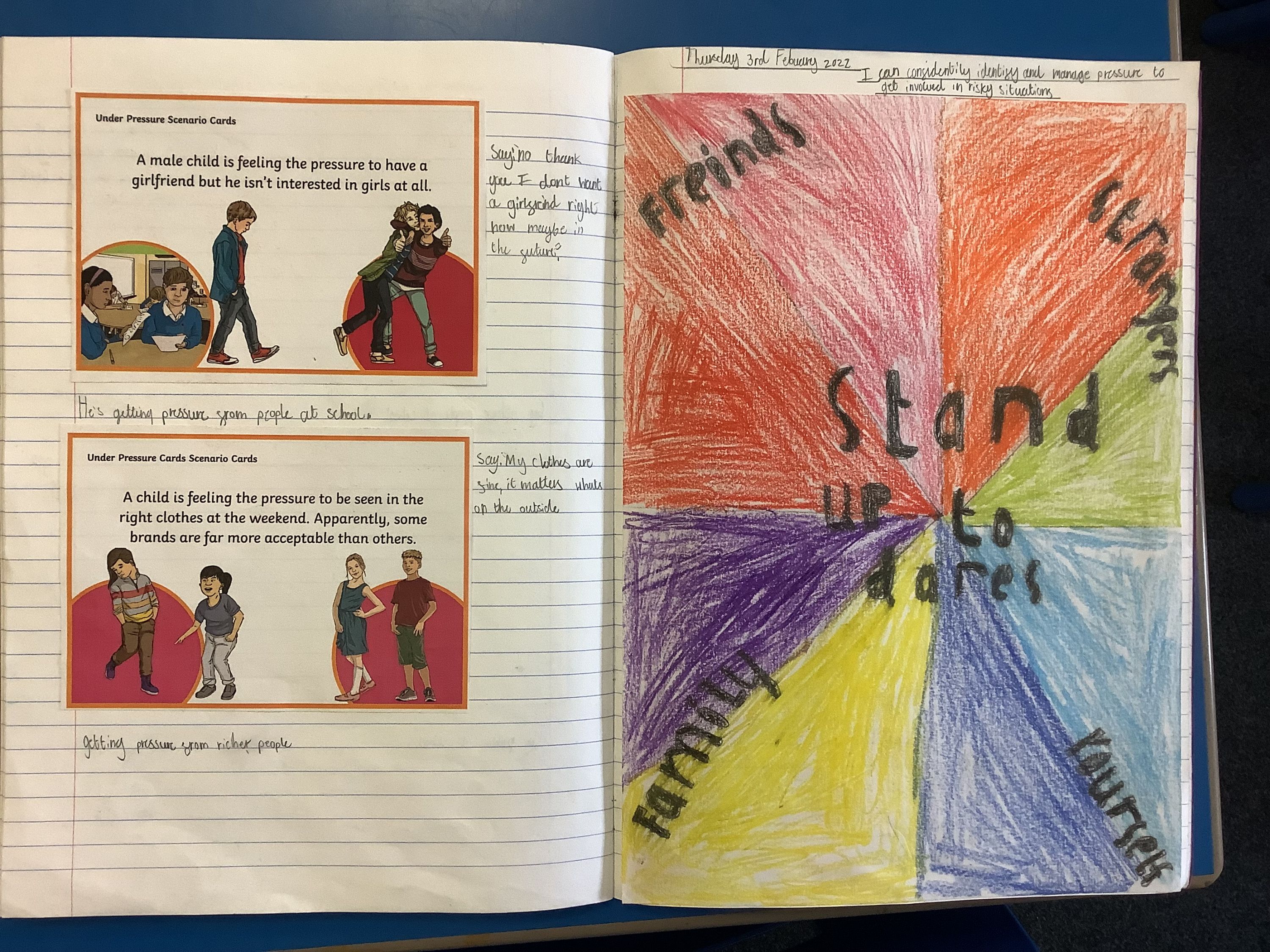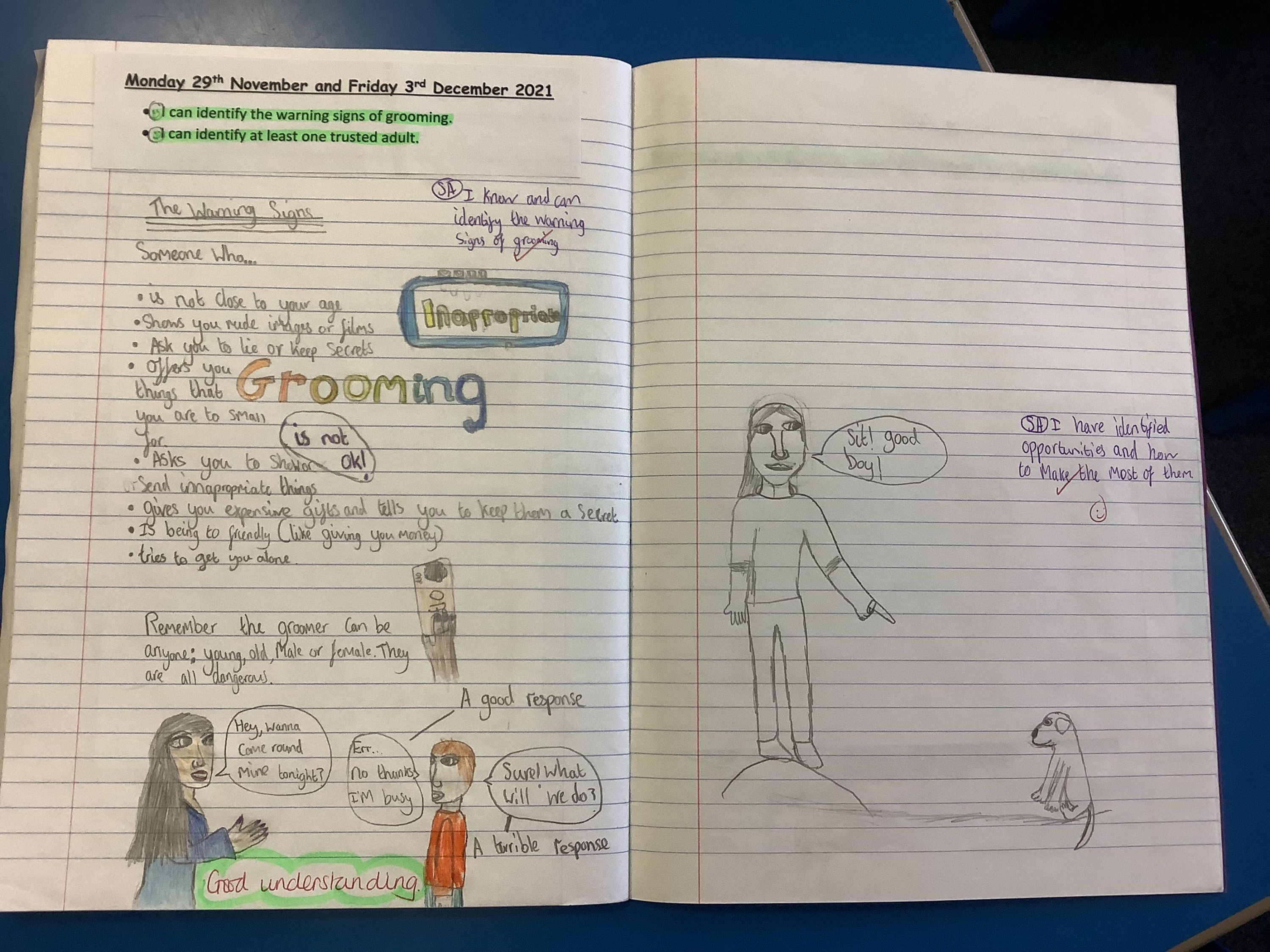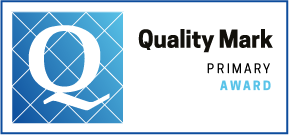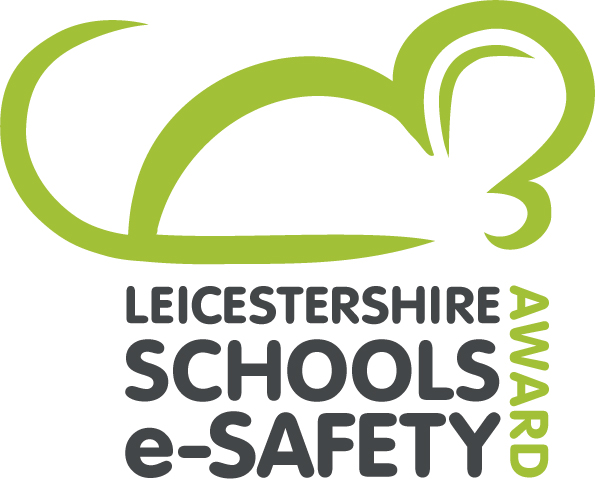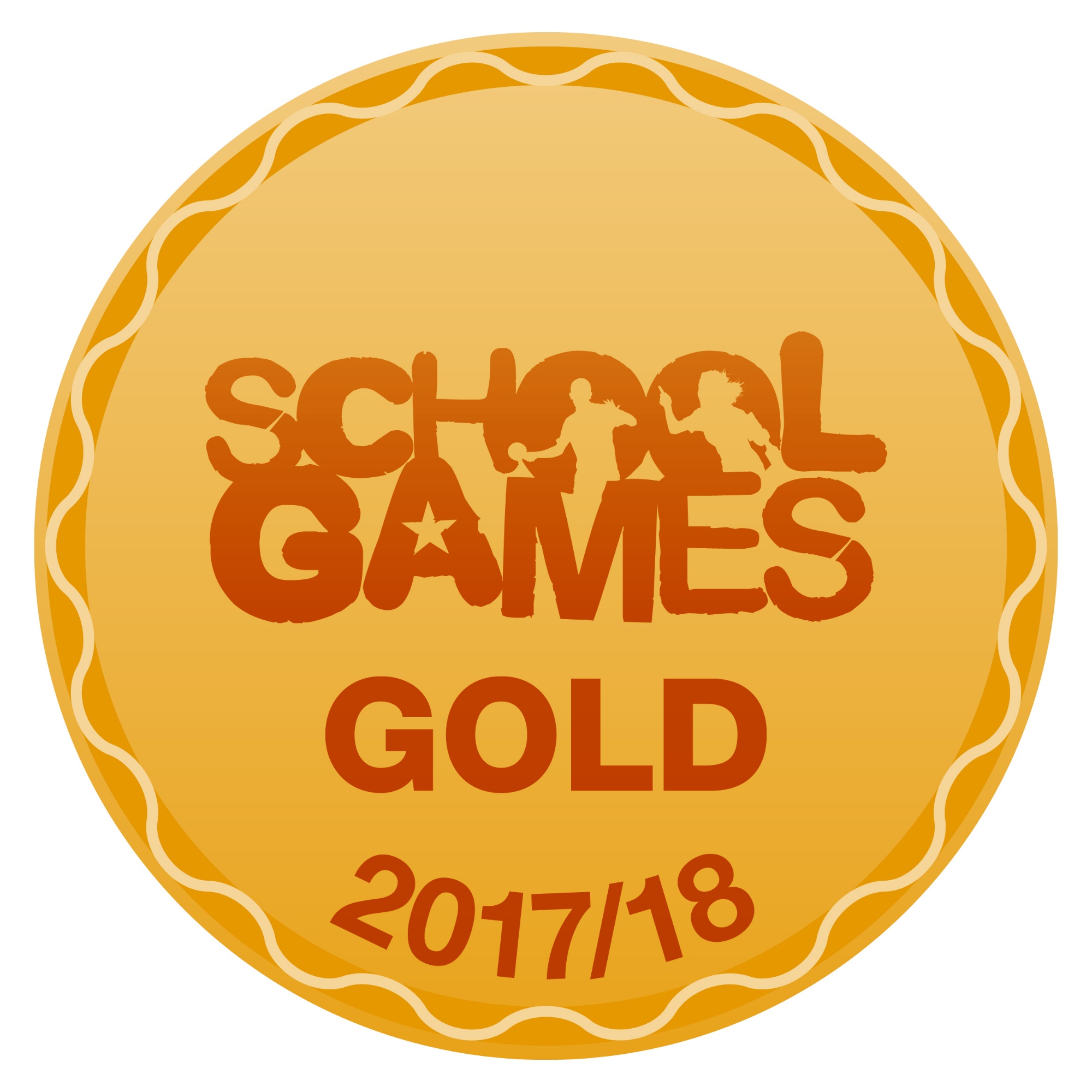PSHCE and Relationshsip Education
Together We Make Learning A Memorable, Unmissable Adventure
We recognise the importance of well-being and healthy choices in enabling a child to learn and to thrive at school and beyond; we actively work to support and enhance pupils' physical and emotional health.
Information for parents about the content of PSHCE/ RSE.
Intent
|
We want children to be equipped with the essential skills for a happy and fulfilling life. We want them to have safe and healthy lifestyles; build and sustain positive relationships; have positive attitudes toward learning – knowing that mistakes and misunderstandings help us learn and do not make us failures. We appreciate that at some point in our lives we all experience difficulties which can make us vulnerable, therefore, through partnerships with parents, our ethos, our curriculum and where needed additional support we;
|
All learners should have a voice and be heard. All ideas are valid but open to respectful challenge. PSHCE is a powerful and empowering subject, helping to prepare our children for their life now and in the future. We want to ensure that our pupils recognise everyone’s value in society, have a good understanding of British values and have a strong, positive view of themselves and the contributions they can make. We want them to strive to build brighter futures by being aware of current issues, thinking carefully about how they can contribute to a better future for all and for our planet. We want all our learners to believe that they can be powerful ambassadors for change in our world and that anything is possible if we work together with moral purpose.
|
|
We want to ensure that all children at Newton Burgoland Primary school have the opportunity to develop their leadership and collaboration skills through additional responsibilities such as School Council, diversity Champions, Internet Safety champions, Sports Ambassadors and the Eco Team. We want to make sure that our children are well-informed about the problems that the planet faces and are thoughtful about the ways in which everyone can help.
We want all children to feel that the PSHCE curriculum is relevant to them and meets their needs so in key stage 2 our pupils work together weekly to look at 'Fridays for the Future' exploring themes which matter to them.
Implementation
Our PSHCE curriculum was reviewed in 2018-19.
We worked with and consulted parents to develop our policy for RSE in 2020.
KS1 units
Class one and two will teach the units at the same time. Over the 3 years all unit’s will be covered. EYFS will join in with the units due to having mixed age classes. It’s my body will be covered every year. There are some extra unit’s to be fit in for year 2. Digital wellbeing will be fit in with E-Safety.
|
|
Relationships |
Living in the wider world |
Health and Well-being |
|
Year A |
Be yourself |
Aiming High |
It’s my Body Safety First |
|
Year B |
TEAM |
One World |
It’s my Body Think Positive |
|
Year C |
VIP’s |
Diverse Britain |
It’s my Body |
Additional units: Digital wellbeing – link in where we do E-Safety
Year 2 additional units: Money Matters and Growing up.
KS2 units
In KS2 these are the units to be covered over 2 years. There are separate units under each heading for LKS2 and UKS2 that build on the work covered in KS1. They cover the 3 core headings relationships, health and well being and living in the wider world as in KS1.
|
Year A |
TEAM (Relationships)
Aiming High (Living in the wider world) |
Safety First (Health and well being) Digital well-being (Relationships) Thinking Positive (Health and well being) |
It’s my Body (Health and well being) Growing up (Health and well being) |
|
Year B |
VIP’s (Relationships) Be yourself (Relationships) |
One world (Living in the wider world) Money Matters (Living in the wider world) Diverse Britain (Living in the wider world) |
It’s my Body (Health and well being) Growing up (Health and well being) |
The National Curriculum is fully in place at Newton Burgoland Primary School. Our adopted scheme of work “Twinkl Life’s PSHE and Citizenship” is fully in line with the Learning Outcomes and Core Themes provided by the PSHE Association Programme of Study which is widely used by schools in England and is recommended and referred to by the DfE in all key documentation relating to PSHE provision in schools. This scheme of work covers all of the required objectives and follows the three core areas of Health and Wellbeing, Relationships and Living in the Wider World. The scheme of work fulfils the requirements of 2020 Statutory Relationships and Health Education, setting these learning intentions in the context of a broad and balanced PSHE curriculum.
At Newton Burgoland Primary School our PSHE lessons are creative, adopting approaches such as role play, discussion and playing games to explore the key areas. Key words are taught in each unit making sure that children build a rich vocabulary for PSHE and develop a good understanding. All of the units in the scheme of work are revisited and built on every 2 years creating a spiralling curriculum. This ensures that children build on what they have already learned, explore the underlying principles of PHSE regularly ensuring depth and are accessing content at an age appropriate level. We have decided that the “our bodies” and “growing up” units need to be covered every year to ensure that our program is meeting the needs of all children at the point of need.
|
|
parent consultation
I think it is vital to normalise talking about these things to children, so that it isn't embarrassing, taboo or awkward. The fuss I hear every year when these classes start always stuns me - its not promoting sex, making them grown up too fast or inappropriate content, it is helping them feel comfortable to speak about it and ask questions and get the right information. I'm very confident this will all be delivered in an age appropriate way.
If my children ask anything I tell them - I never want anything to be a surprise or seems frightening! It is our job to help children be ready for this ever-changing world, where they are expected to make very grown up decisions early - shielding these things from children is not helpful.'
Parent RSE survey response 2020
our curriculum Drivers in PSHCE/ RSE
Reading
Many of our class reads explore sensitive themes giving learners a safe space to view the world from an alternate perspective and to consider how to be safe and well in our changing world.
Character
IN PSHCE/ RSE We challenge learners thinking and their understanding of the world to build upon their sense of self. Learners are taught to challenge the thinking of others and this is always done respectfully. The element of challenge in PSHCE sessions is designed to develop resilience and self-worth.
In PSHCE sessions, we aim to broaden learners experiences of the world and life situations through real-life scenarios. It gives the children a safe space to discuss sensitive issues with confidence, expand their critical thinking and increase their understanding of the varied perspectives of others encountered in the wider world around them. RSE sessions aim to promote the spiritual, moral, cultural, mental and physical development of learners and prepare them for the opportunities, responsibilities and experiences for later life. Learners will know how to be safe and to understand and develop healthy relationships, both now and in their future lives.
Creativity, reasoning and communication
Every child at Newton Burgoland Primary School is recognised as a unique individual, and we celebrate and welcome differences within our school community. This means pupils are encouraged to think and solve problems creatively in an environment that welcomes challenge for all.
Impact
Our children know that Newton Burgoland Primary school is their school. They have strong sense of belonging and pride in there school community. They feel that their school is a safe place with trusted adults who will support them.
Personal development is strong and prepares pupils well for the next stage of education.
Governor monitoring, pupil surveys and feedback from visitors tell us how fantastic our pupils are.
Curriculum Coverage
The PSHCE curriculum is covered through the units below. These are repeated in both key stages and are based on relationships, health and well-being and living in the wider world.
Aiming High (Living in the wider world)
During this unit in KS1 the children will learn to:
- Identify star qualities in others
- Give examples of positive learning attitude statements
- Identify attributes they have that would suit them to a desired job
- Challenge stereotypes
- Discuss their ambitions
- Identify ways next year will be different and explain why they think this.
In Lower KS2 they will build on these skills and learn to:
- Identify skills and attributes that are useful in many roles
- Identify elements of a growth mindset
- Identify and challenge stereotypes
- Discuss goals they could set to work towards their ambitions
- Discuss challenges many people face and how some people overcome these
In Upper KS2 the children will revisit and build on their learning. They will:
- Identify skills and attributes that are useful in many roles
- Identify their preferred learning style
- Identify potential barriers to success
- Identify opportunities that might be available to them in the future
- Identify and challenge stereotypes
- Explain different routes into further education and work
- Discuss goals they could set to work towards their ambitions
- Understand the different roles within a team
- Discuss challenges many people face and how some people overcome these.
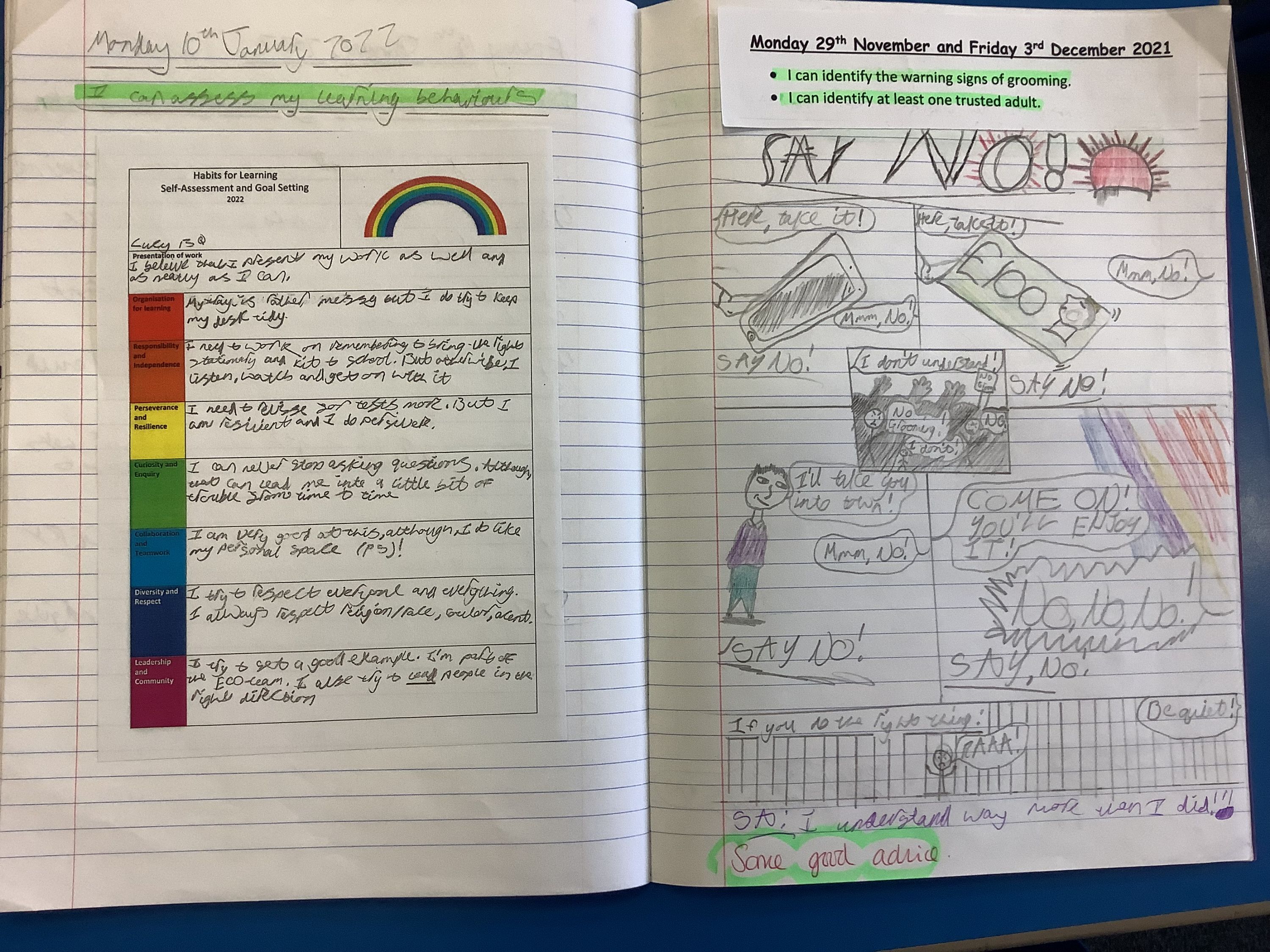
One world (Living in the wider world)
In KS1 in this unit the children will learn to:
- Describe how family life in different countries can be the same as and different from their own
- Think about what children might do in homes around the world
- Describe what it is like to go to school in different countries and identify similarities to and differences from theirs
- Think about how the environment affects people’s daily life
- Discuss the environmental problems of the overuse and misuse of natural resources
- Explain why it is important to care for the earth and discuss ways this can be done.
In Lower KS2 the children will build on this learning and learn to:
- Give reasons for similarities and differences between people’s lives
- Detail if they feel something is fair or not
- Give reasons for their own opinions
- Recognise how their actions impact on people in different countries
- Discuss climate change in terms of what it is and its effects
- Explain how organisations help people in need
In Upper KS2 the children will:
- Explain how to be a responsible global citizen
- Describe what can be done to help prevent global warming from getting worse
- Explain how energy use can be changed to help the environment
- Detail the responsible use of water
- Understand the importance of biodiversity
- Describe the impact of their choices for people and places across the world
Diverse Britain (Living in the wider world)
In this unit in KS1 the children will learn to:
- Describe how they can help groups and communities they belong to
- Recognise choices can have negative and positive consequences
- Explain some consequences of negative and positive choices
- Talk about why helping their neighbourhood is important
- Describe different aspects of living in Britain
- Give reasons why it is important to have differences
- Identify famous British people, places and events
- Explain what famous British people, places and events tell them about being British.
In Lower Ks2 the children will build on learning from KS1 and learn to:
- Describe the benefits of living in a diverse and multicultural society
- Understand why democracy is important
- Identify how rules and laws help them
- Identify the rights of the British people
- Describe what being British means to others.
In Upper KS2 the children will:
- Identify ways of showing respect to people of all faiths and ethnicities
- Explain what it means to belong to a community
- Identify how laws help them
- Discuss local government in relation to democracy and human rights
- Discuss national government in relation to democracy and human rights
- Identify how charities and voluntary groups help meet the needs of all people in the community
Be yourself (Relationships)
In KS1 the children will learn to:
- Say what makes them an individual.
- Identify feelings from facial expressions and body language.
- Talk confidently about what they like that makes them feel happy.
- Explain how to manage feelings of anger and sadness.
- Describe strategies to explain how change and loss can be dealt with positively.
- Understand the importance of sharing their thoughts and feelings respectfully.
In Lower KS2 the children will build on this by learning to:
- Identify their own strengths
- Explain that how they are feeling on the inside can affect their facial expressions and body language
- Identify and begin to implement strategies to help them cope with uncomfortable feelings
- Begin to demonstrate appropriately assertive behaviour
- Analyse messages given by the media about how they should look, think and behave
- Demonstrate how they are going to make things right after mistakes have been made
- Explain what they have learnt and how they have grown from mistakes they have made.
In Upper KS2 the children will:
- Complete scenarios by advising on how to communicate feelings in different situations
- Work in groups to create a role play to show different ways to manage uncomfortable feelings
- Discuss different fight or flight situations
- Discuss the impact of making amends when a mistake has been made.
TEAM (Relationships)
In Ks1 the children will learn to:
- Show the teams they belong to through pictures, name these teams and explain how it feels to be a part of the team
- Create a picture by using good listening to follow instructions
- Create a chain of kindness by thinking of their own idea of a way to be kind
- Draw or write ways to deal with teasing or bullying behaviour
- Sort thoughts given into helpful and not-so-helpful thought categories
- Draw a picture to show a time they made a good choice and to write what happened next.
In Lower KS2 the children will build on this by learning to:
- Work with a partner to write down a change that has come with starting a new class
- Create a role play about a team scenario
- Read clues and work as a team to solve a crime
- Identify a feeling and how it is expressed.
- Show the resolution to a dispute through pictures
- Create a list of good deed ideas.
In Upper KS2 the children will:
- Demonstrate successful teamwork skills
- Disagree respectfully
- Reflect on their own collaborative working skills
- Make compromises
- Explain different effects of unkind behaviour
- Demonstrate ways to care for others within the team
- Discuss the importance and consequences of carrying out shared responsibilities within the class team.
VIP's (Relationships)
In this unit in KS1 the children will:
- Identify who the special people in their lives are and explain why they are important to them
- Explain why having a family network is important
- Know what makes someone a good friend and demonstrate these qualities
- Put positive resolution techniques into practice
- Cooperate with others to complete a task
- Identify several ways to show others that they care and understand the importance of doing this.
In Lower KS2 the children build on their learning. They will:
- Create a list to show different ways we can care for our VIPs
- Show a calming technique on a poster
- Discuss how a disagreement could either be avoided or handled
- Write and explain what to do when feeling pressured
- Identify and discuss which secrets are OK to keep and which need to be shared
- Identify healthy and unhealthy relationships.
Be Yourself (Relationships)
In KS1 the children learn to:
- Say what makes them an individual.
- Identify feelings from facial expressions and body language.
-Talk confidently about what they like that makes them feel happy.
- Explain how to manage feelings of anger and sadness.
- Describe strategies to explain how change and loss can be dealt with positively.
- Understand the importance of sharing their thoughts and feelings respectfully.
In Lower KS2 they will:
- Identify their own strengths
- Explain that how they are feeling on the inside can affect their facial expressions and body language
- Identify and begin to implement strategies to help them cope with uncomfortable feelings
- Begin to demonstrate appropriately assertive behaviour
- Analyse messages given by the media about how they should look, think and behave
- Demonstrate how they are going to make things right after mistakes have been made
- Explain what they have learnt and how they have grown from mistakes they have made.
In Upper KS2 the children will:
- Complete scenarios by advising on how to communicate feelings in different situations
- Work in groups to create a role play to show different ways to manage uncomfortable feelings
- Discuss different fight or flight situations
- Discuss the impact of making amends when a mistake has been made.
Safety First (Health and Well Being)
In Ks1 the children will learn to:
- Identify ways to stay safe in the home
- Identify a range of dangers outside
- Explain the basics of the Green Cross Code
- Explain why we shouldn’t take anyone else’s medicine
- Explain what to do if they feel unsafe online
- Explain the difference between safe secrets, unsafe secrets and surprises
- Identify their personal ‘trusted adults’
In Lower Ks2 the children will build on this learning and:
- Appreciate what being responsible means and name some of their responsibilities
- Give examples of a range of risky or dangerous situations
- Appreciate that doing something risky may lead to danger
- Describe where pressure to do things can come from; identify people who can help us in an emergency
- Identify safety precautions that can be taken when using roads, water or railways
- Explain some of the ways in which drugs, cigarettes and alcohol affect the human body
- Explain some of the ways to treat common injuries
- Explain how to keep themselves and others safe in an emergency situation
- Identify what information will need to be shared with an emergency services operator.
In Upper Ks2 the children will:
- Appreciate what being responsible means
- Assess a situation for the level of risk
- Appreciate that doing something risky may lead to danger
- Identify people who can help us in an emergency
- Understand the importance of taking action to reduce the risk of harm
- Explain how we know which substances around the home contain chemicals
- Identify safety precautions that can be taken when using roads, railways or water.
It's my body (Health and Well Being)
In KS1 the children will learn to:
- Describe their daily bedtime routine
- Explain what happens if you do not exercise regularly
- Explain that other people have rights for their own body
- List some foods that are good to have once a week
- Identify hazard signs that mean something is dangerous
- Explain what germs are and why people need to keep clean
In Lower Ks2 the children will:
- List some of the effects of sleep deprivation
- Explain the effect of exercise on the heart
- Know how to get help for themselves or another in the case of serious problems
- Explain why eating a balanced diet is important
- Know how to check medicine instructions
- Know how to inhibit the spread of germs
- Explain the importance of vaccinations and immunisations.
In Upper Ks2 the children will learn to:
- Define consent and autonomy
- Explain the importance of vaccinations and immunisations
- Identify the implications of not getting enough sleep
- Understand why they need to change some of their habits and routines as they get older
- Identify where the pressure to try harmful substances might come from
- Understand that many images seen in the media are artificially enhanced
- Identify some factors that influence the choices they make about their bodies
- Understand that the choices they make about their bodies have consequences.
Think Positive (Health and Well Being)
In KS1 in this unit the children will learn to:
- Recognise and describe positive thoughts and negative thoughts
- Think about and discuss the consequences of decisions they make and their actions
- Set goals for themselves and think about how they might achieve them
- Recognise triggers for certain emotions
- Describe ways to show or give thanks for what we have
- Describe what being mindful is.
In Lower Ks2 the children will build on this by learning to:
- Understand that having a positive attitude is good for our mental health
- Understand the causes of negative thoughts
- Identify ways to cope with negative thoughts
- Understand the impact certain changes can have on people and how it can affect them emotionally
- Identify some mindfulness techniques and discuss which they like to use
- Identify strategies to cope with uncomfortable emotions.
In upper KS2 the children will:
- Describe how their thoughts, feelings and behaviours influence each other
- Explain the range and intensity of their feelings to others
- Name some strategies to deal with unhelpful thoughts
- Know how to make an informed choice
- Appreciate how making good choices can make us happy
- Understand how mindfulness techniques can be used in their everyday lives
- Describe the difference between a growth mindset and a fixed mindset
- Identify strategies for facing a challenge.
Growing Up
In KS1 the children will learn to:
- Consider the best thing to do in a given scenario
- Explain what ‘unique’ means and consider what makes them unique
- Show respect for others’ likes and dislikes
- Show an understanding of the need to get to know a person before making assumptions about them
- Describe physical changes humans go through as they grow up
- Show an understanding of how our responsibilities change as we grow.
- Discuss how certain changes in people’s lives can make them feel.
In Lower Ks2 the children will build on this and learn to:
- Explain what the male and female reproductive body parts are for
- Discuss ways in which people can deal with or overcome emotions experienced during puberty
- Show respect for the differences between different families
- Describe the different types of relationship that exist, without prejudice
- Show an awareness of myths surrounding pregnancy and birth
- Describe the conception and birth of a baby, using some scientific vocabulary.
In Upper Ks2 the children will learn to:
- Explain how to look after their bodies during puberty
- Name some ways to cope with new or difficult emotions
- Describe some of the ways in which the media fuels the notion of a perfect body
- Describe the different types of loving relationships that exist
- Explain the laws around sexual relationships
- Explain what contraception is, how it is used and what it is used for
- Use a range of key vocabulary when discussing differences in sex, gender identity and sexual orientation
- Use scientific vocabulary to accurately explain how babies are made and how they are born
- Describe the process from conception to birth and the needs of the foetus.
Money Matters (Living in the Wider World)
In Ks1 in this unit the children will learn to:
- Explain ways we can save money
- Identify why it is important to keep money safe
- Explain why it is important to keep our belongings safe
- Discuss ways we can keep track of money we spend.
In Lower KS2 the children will build on this by learning to:
- Discuss some consequences financial decisions can have on our emotional wellbeing
- Talk about the importance of prioritising our spending
- Discuss advertisements that try to influence what we buy
- Explain why it is important to keep track of what we spend
- Discuss what is meant by ethical spending.
In upper KS2 the children will:
- Discuss reasons that people take financial risks
- Discuss why advertisers try to influence consumers
- Talk about how to be a ‘critical consumer’
- Identify how to compare the value for money of different products
- Discuss how to make a budget
- Discuss how money can affect people’s emotional wellbeing
- Discuss the fact that everyone’s spending decisions will be different and this should be respected
- Explain what tax is and the ways that people pay it
- Discuss what is meant by ethical spending
- Talk about the environmental impact of fair trade, single-use plastics, recycling used goods and making use of reusable materials.
Warning Zone 23
What did my child do at Warning Zone? Why are they asking me questions?
Find out quickly here https://youtu.be/eSetTDncPIs
Warning Zone has made a very short video to let you know what happened at Warning Zone, but more importantly to ask you to talk to them about what they learnt and heard. There are useful links to other support at the end.
RSe Consultation
Dear Parents and Carers,
RELATIONSHIPS AND SEX EDUCATION CONSULTATION:
KEEPING YOUNG PEOPLE SAFE IN A MODERN WORLD
The Department for Education has announced changes to Relationships and Sex Education (RSE).
These changes will come into effect from September 2020 and all schools will be required to comply with the updated requirements.
This means that we’ll be reviewing our RSE curriculum and policy so we can be sure our RSE provision is appropriate for our pupils based on their:
1. Age
2. Physical and emotional maturity
3. Religious and cultural backgrounds
4. Special educational needs and disabilities
We need your feedback to help us do this. We need to work together to prepare our learners to live in the modern world. Here’s how you can help:
We’re holding consultation meetings on Wednesday 11th March from 2.30 to 3pm and Tuesday 17th March from 9am to 9.30am. Please find attached the consolation document/ policy.
If you’d like to participate, please email admin@newburland.leics.sch.uk or call the school office on 01530 270320, before Friday 6th March.
Please note our definition and aims
• RSE is about the emotional, social and cultural development of pupils, and involves learning about relationships, growing up, choices, healthy lifestyles, diversity and personal identity.
• RSE involves a combination of sharing information, and exploring issues and values.
• RSE is not about the promotion of sexual activity. It is about keeping our children safe.
If you are unable to attend one of the meeting dates, or would prefer to respond online, please take a moment to look at our survey.
https://www.smartsurvey.co.uk/s/LK0UX/
Thank you for your time.
Yours Sincerely,
Sue Ward

